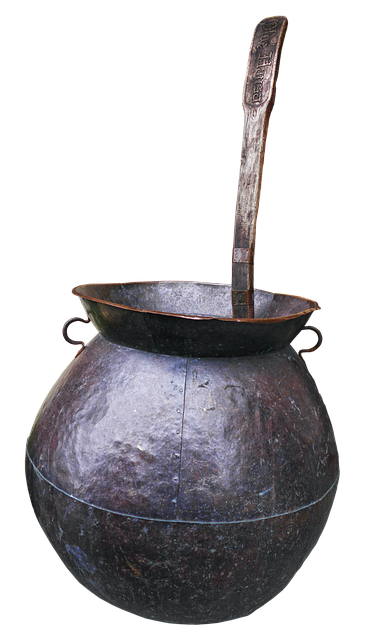Understanding your facility's energy needs and heat demand is vital for selecting a condensing boiler. These boilers extract heat from exhaust gases, offering higher efficiency than standard models. Sizing requires data on water usage and peak demands. Condensing boiler services provide tailored guidelines, ensuring optimal performance. Types include combustion, condensation (highly efficient, eco-friendly), and hybrid. Cost estimates, maintenance needs, and high Annual Fuel Utilization Efficiency (AFUE) ratings are crucial factors for informed choices, balancing efficiency, cost-effectiveness, and easy access for maintenance.
Choosing the best condensing boiler for your facility involves understanding its unique energy needs. Unlike traditional boilers, condensing models recover heat from exhaust gases, enhancing efficiency significantly. This article guides you through the process, focusing on three key areas: evaluating boiler types (combustion, condensation, hybrid), considering efficiency, size, noise, and maintenance requirements, ensuring optimal selection for your facility’s specific demands and maximizing return on investment in terms of condensing boiler service.
- Understand Your Facility's Needs and Energy Consumption
- Evaluate Condensing Boiler Types: Combustion, Condensation, and Hybrid
- Consider Efficiency, Size, Noise, and Maintenance Requirements for Optimal Selection
Understand Your Facility's Needs and Energy Consumption

Understanding your facility’s specific needs and energy consumption patterns is a crucial first step when selecting a condensing boiler. Unlike standard boilers, condensing models are designed to extract additional heat from exhaust gases, making them highly efficient. Thus, knowing your facility’s heat demand and water usage will help determine the right size and type of condensing boiler for optimal performance.
For instance, if you’re in need of a plumber Bromsgrove-based service to install or replace parts in a condensing boiler, ensuring proper sizing is paramount. A larger boiler could waste energy, while a smaller one might struggle to meet demand. Energy consumption data, along with insights into peak usage times, will enable professionals to provide condensing boiler installation guidelines tailored to your facility’s unique requirements.
Evaluate Condensing Boiler Types: Combustion, Condensation, and Hybrid

When evaluating condensing boilers for your facility, understanding the different types is key. There are three primary categories to consider: combustion, condensation, and hybrid. Combustion boilers burn fuel to generate heat, which is then transferred through a system of pipes to radiators or underfloor heating. Condensation boilers, on the other hand, capture and reuse the waste heat that would otherwise be lost from flue gases, making them highly efficient. Hybrid systems combine aspects of both, offering improved energy efficiency and reduced greenhouse gas emissions.
Among these options, condensation boilers stand out for their superior energy efficiency, capable of recovering up to 10% more heat than traditional models. They also produce less carbon dioxide, contributing to a greener environment. Moreover, modern condensing boilers often come equipped with low-noise solutions, ensuring a quieter operation that enhances the overall comfort of your facility. To get an accurate picture of the best fit, obtain boiler service cost estimates from professionals and consider the replacement parts in a condensing boiler that might be required for maintenance, as these factors can significantly impact your decision.
Consider Efficiency, Size, Noise, and Maintenance Requirements for Optimal Selection

When selecting a condensing boiler for your facility, several key factors should guide your decision to ensure optimal performance and cost-effectiveness. Efficiency is paramount; modern condensing boilers boast advanced heating elements that capture latent heat from condensation, significantly boosting energy efficiency compared to traditional models. Look for models with high AFUE (Annual Fuel Utilization Efficiency) ratings to maximize fuel savings over time.
The size of your facility should dictate the boiler’s capacity. An appropriately sized unit will efficiently heat your space without wasting energy. Additionally, consider noise levels, especially if your facility is in a residential area or has sensitive environments. Condensing boilers are generally quieter than their non-condensing counterparts due to advanced technology, but choosing a model with low noise emissions ensures a peaceful atmosphere. Regular maintenance, including residential condensing boiler tune-ups, plays a vital role in extending the life of your investment, so ensure the chosen boiler is compatible with easy access for service and repair.
When selecting a condensing boiler, understanding your facility’s unique energy needs is key. By evaluating boiler types, considering efficiency ratings, and assessing maintenance requirements, you can make an informed decision. Remember, the best condensing boiler for your facility will optimize performance, reduce energy costs, and provide reliable heating and hot water. Don’t forget to consider noise levels for a more comfortable environment. With these factors in mind, you’re ready to choose the ideal condensing boiler and enjoy enhanced energy efficiency through professional condensing boiler service.
